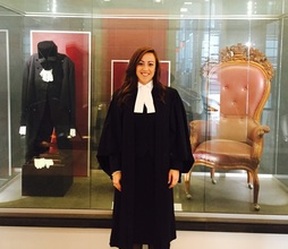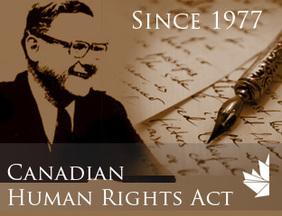
Schaeffer vs. Wood – A Matter of Perspective
This case was released by the Supreme Court of Canada on December 19, 2013, and addressed the right of police officers to consult with legal counsel prior to the preparation of their notices during an investigation involving the Special Investigations Unit.
The Supreme Court determined that police officers do not have a right to consult with a lawyer prior to the preparation of their notes, however, this decision reaffirms that police officers are entitled to have counsel present for interviews and any additional processes thereafter. The Court ultimately failed to make a decision on the Charter rights of officers involved in SIU investigations, which renders this decision incomplete in that regard.
This ruling suggests that allowing police officers to fully consult with counsel at the note-making stage creates a sense of bad optics, however, it also emphasizes that counsel giving full legal advice to police officers was not improper. In balancing a police officer’s public duty to accurately record an incident against that officer’s private interest in avoiding criminal prosecution, the Court favored the “appearances” argument of how it looked to the public. Despite the fact these two interests are one and the same, any public misunderstanding that is created by an officer receiving legal advice prior to completing his/ her notes, was found to outweigh that officer’s Charter rights.
Although very disappointing, we must consider that this case does not prevent officers from contacting their senior officers prior to the note-taking stage, and it does not prevent the immediate notification of counsel. In addition, this decision does not prevent counsel from discussing the matter at hand with individuals who are not involved in the actual incident, such as the SIU liaison officer, officers in charge, or Association representatives.
Overall, all members in these situations are encouraged to engage their Association representatives, who are fully equipped to provide all of the necessary information. In addition, officers should ask any questions they may have regarding SIU investigations prior to becoming involved in an SIU incident.
Insubordination or Self-Preservation?
The Ontario Civilian Police Commission has concluded that the merging of criminal and Police Services Act investigations amounts to an abuse of process. The Commission has determined that the merging of these investigations is inappropriate and the evidence that results from them is therefore, contaminated. .
The impropriety of police officers being forced to incriminate themselves during criminal investigations under the purported justification that they are being compelled to give a statement under the Police Services Act has been a common issue that has arisen over several years within disciplinary proceedings. My position has repeatedly been that this practice is contrary to the Charter of Rights and Freedoms.
The common position from most Police Services has been to agree not to compel police officers to give statements during criminal investigations, however, the reality is this still occurs, and at times, officers are ordered to provide statements under the threat of facing charges of insubordination should they refuse to “cooperate”.
The Commission has emphasized that using Part V of the Police Services Act to compel evidence in a disciplinary matter against a police officer, to assist a criminal investigation against the same officer, is not justified. It brings the police discipline system into disrepute to discipline an officer based on evidence that is acquired in this manner. It also undermines the public confidence that PSA-based investigations and proceedings will be conducted in a manner that is fair, lawful and respectful of a subject officer’s constitutional rights.
Investigations conducted by police officers have to be conducted with the greatest respect for fairness because they are the foundation of the further prosecution of offences.
Taking the Initiative to Ensure Fairness
With increasing amounts of public complaints being brought forward, the OIPRD has become an integral part of the oversight that is taking place within this profession. In that regard, the role of Associations within these matters has also increased.
Pamela has engaged the OIPRD director Gerry McNeilly in discussion regarding several areas of concern for Associations. Some of the topics for discussion include the 6-month time period the PSA permits to have an officer served with a Notice of Investigation, the consistency in the approach taken by the OIPRD across the province, including penalties and procedures, and the consent of the public complainant and the OIPRD in formal disciplinary matters.
The OIPRD has provided assurances they are working to ensure officers are not held in limbo for the 6-month time period, awaiting the outcome of their investigations. Furthermore, they have agreed to revisit their approach in several matters to ensure consistency is being applied. We will work diligently to monitor this progress, and make inquiries into the transparency of this entire process. We will work adamantly to demand a more uniform approach be taken to ensure all matters involving the OIPRD are dealt with according to the PSA consistently. We will continue to educate and update you on this process, as it unfolds.
The OIPRD is Not a Party to a PSA Proceeding
In recent PSA decisions, such, as Toronto Police Service vs. L.D. 2015 ONSC 6971, the OIPRD has been denied standing at disciplinary proceedings held as the result of a public complaint. The OIPRD has sought to be made a party to the proceeding, requesting a seat at the table to explain its position, call evidence and make submissions.
The PSA quite clearly states the parties to the hearing are the prosecutor, the subject officer and the complainant. The OIPRD is granted many extraordinary powers under the legislation, however, the law does not grant the OIPRD standing at an officer‘s disciplinary hearing.
The Hearing Officer confirmed this, and held that standing for the OIPRD was neither necessary nor permissible under the Act. He further held that the OIPRD could provide evidence as a witness called by one of the parties to explain why information may not have been shared with the prosecutor.
One step at a time, we will work through these developments in order to ensure you are prepared for any outcome.
This case was released by the Supreme Court of Canada on December 19, 2013, and addressed the right of police officers to consult with legal counsel prior to the preparation of their notices during an investigation involving the Special Investigations Unit.
The Supreme Court determined that police officers do not have a right to consult with a lawyer prior to the preparation of their notes, however, this decision reaffirms that police officers are entitled to have counsel present for interviews and any additional processes thereafter. The Court ultimately failed to make a decision on the Charter rights of officers involved in SIU investigations, which renders this decision incomplete in that regard.
This ruling suggests that allowing police officers to fully consult with counsel at the note-making stage creates a sense of bad optics, however, it also emphasizes that counsel giving full legal advice to police officers was not improper. In balancing a police officer’s public duty to accurately record an incident against that officer’s private interest in avoiding criminal prosecution, the Court favored the “appearances” argument of how it looked to the public. Despite the fact these two interests are one and the same, any public misunderstanding that is created by an officer receiving legal advice prior to completing his/ her notes, was found to outweigh that officer’s Charter rights.
Although very disappointing, we must consider that this case does not prevent officers from contacting their senior officers prior to the note-taking stage, and it does not prevent the immediate notification of counsel. In addition, this decision does not prevent counsel from discussing the matter at hand with individuals who are not involved in the actual incident, such as the SIU liaison officer, officers in charge, or Association representatives.
Overall, all members in these situations are encouraged to engage their Association representatives, who are fully equipped to provide all of the necessary information. In addition, officers should ask any questions they may have regarding SIU investigations prior to becoming involved in an SIU incident.
Insubordination or Self-Preservation?
The Ontario Civilian Police Commission has concluded that the merging of criminal and Police Services Act investigations amounts to an abuse of process. The Commission has determined that the merging of these investigations is inappropriate and the evidence that results from them is therefore, contaminated. .
The impropriety of police officers being forced to incriminate themselves during criminal investigations under the purported justification that they are being compelled to give a statement under the Police Services Act has been a common issue that has arisen over several years within disciplinary proceedings. My position has repeatedly been that this practice is contrary to the Charter of Rights and Freedoms.
The common position from most Police Services has been to agree not to compel police officers to give statements during criminal investigations, however, the reality is this still occurs, and at times, officers are ordered to provide statements under the threat of facing charges of insubordination should they refuse to “cooperate”.
The Commission has emphasized that using Part V of the Police Services Act to compel evidence in a disciplinary matter against a police officer, to assist a criminal investigation against the same officer, is not justified. It brings the police discipline system into disrepute to discipline an officer based on evidence that is acquired in this manner. It also undermines the public confidence that PSA-based investigations and proceedings will be conducted in a manner that is fair, lawful and respectful of a subject officer’s constitutional rights.
Investigations conducted by police officers have to be conducted with the greatest respect for fairness because they are the foundation of the further prosecution of offences.
Taking the Initiative to Ensure Fairness
With increasing amounts of public complaints being brought forward, the OIPRD has become an integral part of the oversight that is taking place within this profession. In that regard, the role of Associations within these matters has also increased.
Pamela has engaged the OIPRD director Gerry McNeilly in discussion regarding several areas of concern for Associations. Some of the topics for discussion include the 6-month time period the PSA permits to have an officer served with a Notice of Investigation, the consistency in the approach taken by the OIPRD across the province, including penalties and procedures, and the consent of the public complainant and the OIPRD in formal disciplinary matters.
The OIPRD has provided assurances they are working to ensure officers are not held in limbo for the 6-month time period, awaiting the outcome of their investigations. Furthermore, they have agreed to revisit their approach in several matters to ensure consistency is being applied. We will work diligently to monitor this progress, and make inquiries into the transparency of this entire process. We will work adamantly to demand a more uniform approach be taken to ensure all matters involving the OIPRD are dealt with according to the PSA consistently. We will continue to educate and update you on this process, as it unfolds.
The OIPRD is Not a Party to a PSA Proceeding
In recent PSA decisions, such, as Toronto Police Service vs. L.D. 2015 ONSC 6971, the OIPRD has been denied standing at disciplinary proceedings held as the result of a public complaint. The OIPRD has sought to be made a party to the proceeding, requesting a seat at the table to explain its position, call evidence and make submissions.
The PSA quite clearly states the parties to the hearing are the prosecutor, the subject officer and the complainant. The OIPRD is granted many extraordinary powers under the legislation, however, the law does not grant the OIPRD standing at an officer‘s disciplinary hearing.
The Hearing Officer confirmed this, and held that standing for the OIPRD was neither necessary nor permissible under the Act. He further held that the OIPRD could provide evidence as a witness called by one of the parties to explain why information may not have been shared with the prosecutor.
One step at a time, we will work through these developments in order to ensure you are prepared for any outcome.

 RSS Feed
RSS Feed





